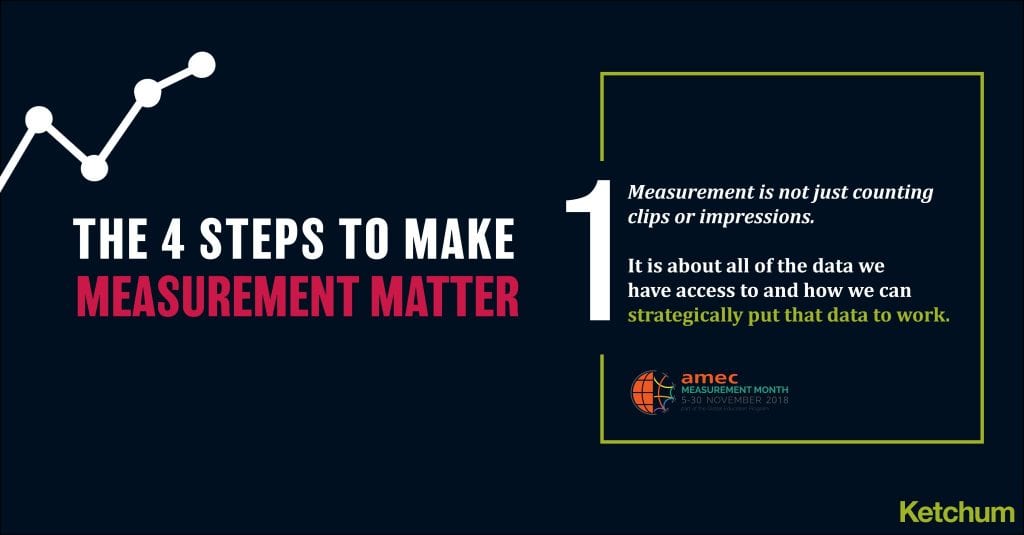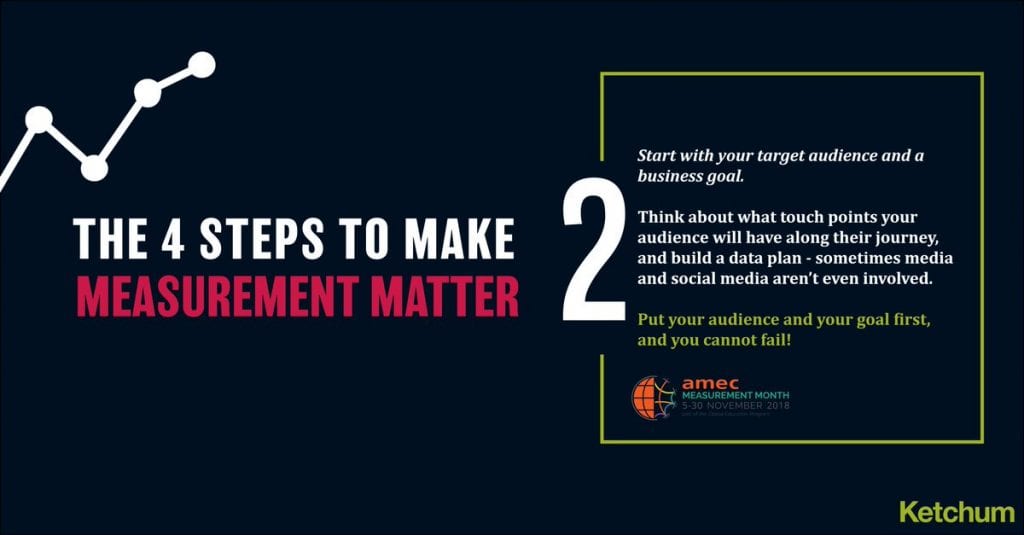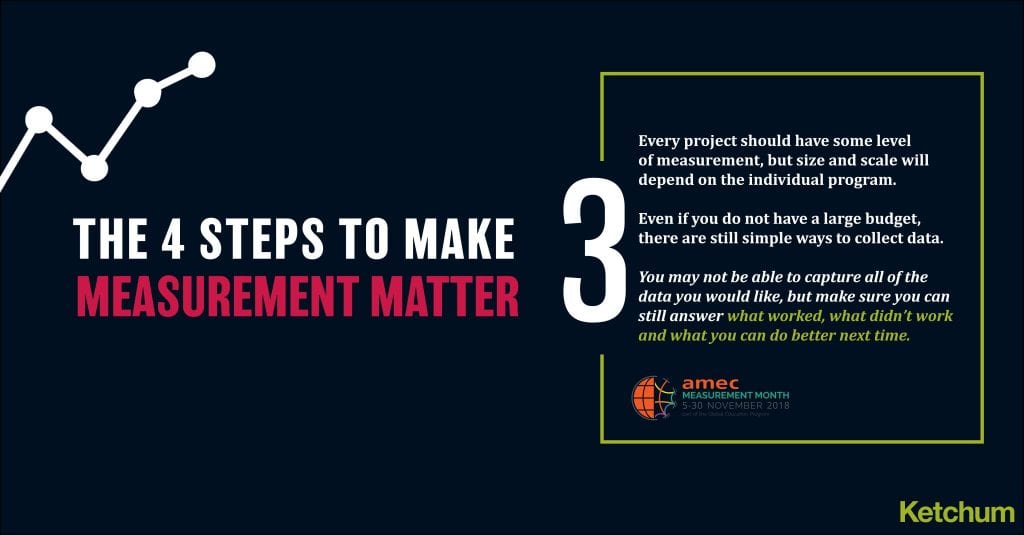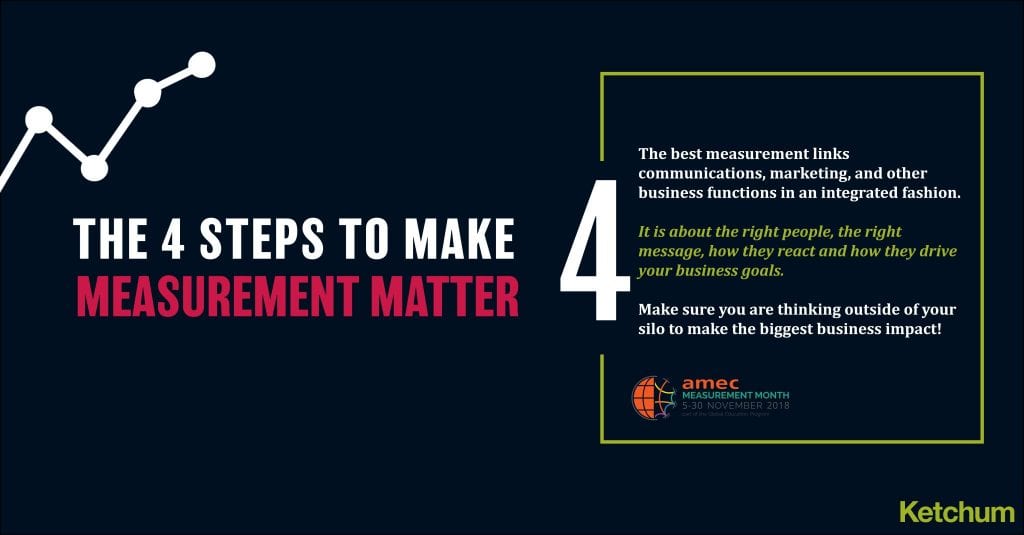“Data” has become a word seen in nearly every article, headline, RFP, proposal, and trends piece. The good news, more people are talking about it! The bad news, people are also becoming complacent, lazy- and even worse—are beginning to roll their eyes.
Data collection, analysis and measurement is essential across all industries and, when used efficiently, allows organizations to make strategic and informed decisions regarding their business goals. The key word there: efficiently.

The amount of data we are both producing and collecting is growing at an unprecedented pace. Just think about the data trail we leave on any given day when performing tasks as routine as picking up our smart phones, interacting on social media, or online shopping. The ongoing advancement of tools and technologies over recent years has created a new network ripe with opportunities for data-driven innovation, as well as an ability to collect much bigger data sets. But, it also creates environments where people both rely on simple and easy to access data, yet are increasingly overwhelmed by it.
The good news is that not only is the amount of data readily available increasing, but also advances in AI and automation are allowing us to process larger data sets and extract meaningful insights that drive business outcomes much more efficiently. Automation is going to be key to success. While we see automation playing an increasingly important role in the measurement and evaluation of data, “the human touch” remains crucial in providing clients with the strategic direction needed to make the most out of the data that they have access to. Simply put, automation will do the heavy lifting—but humans will still provide the context and storytelling.

So, what does this actually mean? It means that the amount of data out there, the hype around it, the creation of it, the tools used to harvest it—is unimportant if you do not have a plan to put it to good use. The ability to develop meaningful, data-smart, conclusions and campaigns that tell better brand stories is crucial to business success. The recipe is simple: reach the right people via the right channels with the right messages. This might mean that you do not need some data, that you need to be honest about your inability to collect certain data and that you need to re-think how you collect data and ensure it is done efficiently.
As the amount of available data continues to increase, asking the right questions to tell the right story becomes more challenging. Many organizations struggle to use data meaningfully because they don’t set goals and identify the business need at the beginning of a campaign. Clearly articulating measurable goals against which you track performance allows you to gain insights that drive towards continuous improvement and success – it allows you to turn data into action. The best data and most advanced analytical tools and techniques are irrelevant if they are not being leveraged by people who are asking the right questions.

To accomplish this collective goal, agencies and businesses need to work together to foster a strong level of data transparency, breaking down the silos within their organization so the potential for the data they have, and the data they do not realize they have, can be realized.
It is no longer enough to focus on one KPI or only look at one data set. Only by seeing the whole picture data paints can you begin unearths the insights, and develop the campaigns, that lead to needle-moving positive business outcomes.

This post was published as part of Measurement Month. Every year, AMEC – the International Association for the Measurement and Evaluation of Communications – hosts Measurement Month, a month dedicated to highlighting the critical role that measurement plays in communications and PR. Throughout the month of November, Ketchum Analytics was heavily involved in Measurement Month, participating in various events and joining in on the discussion around PR Measurement on social media and with our colleagues across the industry. Reflecting back on all of the content that was produced and shared during this year’s Measurement Month, the idea of data, and the amount of data that we have access to was at the forefront of the conversation. Data is a crucial part of measurement, the backbone of process that makes it possible to show impact, and in recent years, as data as turned into ‘Big Data’, it is more important than ever to understand the impact that this will have on the industry.


